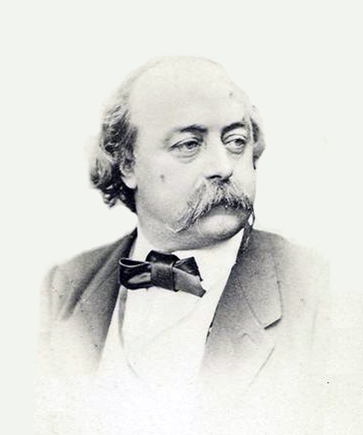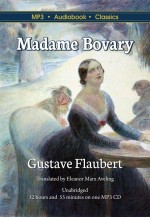Gustave Flaubert
|
Gustave Flaubert (December 12, 1821 – May 8, 1880) was a French novelist best known for his masterpiece Madame Bovary, his fanatical devotion to style and aesthetics, and for leading the French literary realism movement. He was born and raised in Rouen, Normandy, where his father was a surgeon and hospital director. In 1840 he went to Paris to study law, but left in 1846, finding the law unappealing and Paris distasteful, and returned to Croisset, near Rouen, where he lived for the rest of his life, with occasional travels to England, Paris, Africa, and the Middle East. He never married, but had affairs and was candid about relations with prostitutes in his travels. His literary output was quite small, owing to his painstaking perfectionism and constant revision. He spent five years writing Madame Bovary and four years writing the follow up Salammbo. He believed in the principle of finding the exact right word and avoiding the abstract, the imprecise, the inapt expression and especially the cliché. He was esteemed among his peers, who included Victor Hugo, George Sand, Emile Zola, and Ivan Turgenev, among others, and was a strong influence on the work of Guy de Maupassant, Edmond de Goncourt, and Zola. Perhaps his most important contribution was elevating the art of prose writing to the level of poetry. Critic James Wood describes it as follows: Novelists should thank Flaubert the way poets thank spring; it all begins again with him. There really is a time before Flaubert and a time after him. Flaubert decisively established what most readers and writers think of as modern realist narration, and his influence is almost too familiar to be visible. We hardly remark of good prose that it favors the telling of brilliant detail; that it privileges a high degree of visual noticing; that it maintains an unsentimental composure and knows how to withdraw, like a good valet, from superfluous commentary; that it judges good and bad neutrally; that it seeks out the truth, even at the cost of repelling us; and that the author's fingerprints on all this are paradoxically, traceable but not visible. You can find some of this in Defoe or Austen or Balzac, but not all of it until Flaubert. |
Madame Bovary
Madame Bovary is considered by many as the first major novel in the style of literary realism and on..
$11.99


